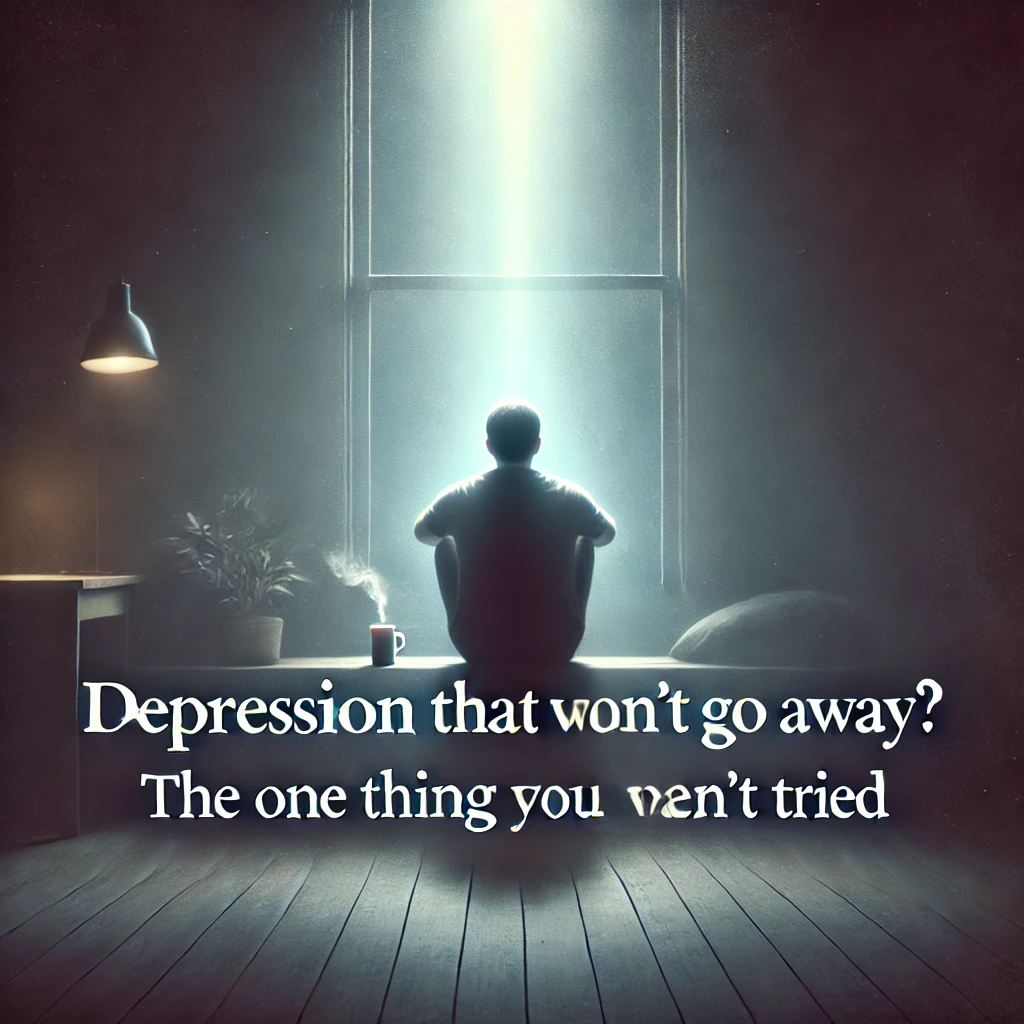Have you been battling depression for what feels like an eternity, but nothing seems to help? The sadness, the fatigue, the hopelessness—it just won’t lift, no matter what you do. You’ve tried medication, therapy, self-care routines, and maybe even taking time off to recharge. Yet, something still feels off. Could there be one thing that you haven’t tried yet? If you're struggling to find relief, there’s a good chance that what you haven't considered is your gut health.Recent research has uncovered a surprising connection between your gut and your mental health. It turns out that the bacteria in your gut might be playing a much bigger role in your depression than you realize. In fact, improving your gut health could be the missing piece in your recovery puzzle.Why Your Gut Health Matters More Than You ThinkWe tend to think of depression as a purely emotional or psychological issue, but emerging science suggests that it’s much more complex than that. Studies have shown that gut health is strongly linked to brain function and mood regulation. The gut is often referred to as the "second brain" because it houses a large number of neurons and produces more than 90% of the body’s serotonin— a neurotransmitter that affects mood, sleep, and appetite. In other words, an unhealthy gut might be contributing to your depression.How the Gut and Brain Are Connected
- Gut-Brain Axis: The gut and the brain communicate through what’s called the "gut-brain axis." This system of pathways allows signals to travel from the gut to the brain and vice versa. When your gut is unhealthy, it can send signals that disrupt your brain’s function, potentially leading to feelings of depression or anxiety.
- Inflammation and Depression: Studies suggest that inflammation in the gut can trigger inflammation in the brain. Chronic inflammation has been linked to a number of mental health issues, including depression. Therefore, reducing gut inflammation may help improve your mood.
- Gut Microbiome: The trillions of bacteria in your gut—known as the gut microbiome—play a vital role in regulating your mental health. A lack of diversity in gut bacteria has been linked to higher rates of depression. Conversely, a balanced microbiome can contribute to a healthier, happier brain.
- Eat a Gut-Healthy Diet
- Focus on foods rich in fiber, prebiotics, and probiotics. Fiber helps feed healthy gut bacteria, while probiotics (found in foods like yogurt, kefir, and fermented vegetables) introduce beneficial bacteria into your gut. Together, they work to balance your microbiome and improve mood regulation.
- Reduce Processed Foods and Sugar
- Processed foods, particularly those high in sugar and unhealthy fats, can disrupt the balance of gut bacteria. Studies have shown that high-sugar diets are linked to an increased risk of depression and anxiety. Consider reducing or eliminating sugary, processed foods to help restore your gut health.
- Take Gut Health Supplements
- Consider taking probiotic supplements or prebiotics (fiber that feeds good gut bacteria). Research has shown that these supplements can help support a balanced microbiome and improve mental health outcomes. However, always consult with your doctor before adding supplements to your routine.
- Stay Hydrated
- Drinking plenty of water can help with digestion and maintain a healthy gut lining, which is crucial for overall gut health. Aim to drink at least 8 glasses of water per day.
- Exercise Regularly
- Regular physical activity is one of the best ways to improve both your gut health and mental health. Exercise stimulates the growth of beneficial gut bacteria and helps reduce inflammation, which can have a positive impact on your mood.
- Sarkar, A., et al. (2021). "Gut microbiome and its impact on mental health: A review." Psychiatry Research, 305, 114189.
- Mörkl, S., et al. (2020). "Gut microbiome and depression: What we know and what we don't know." European Journal of Neuroscience, 51(1), 90-99.
- Liu, R. T., et al. (2022). "The impact of diet on depression: Gut microbiota as a mediator." Psychiatry Research, 313, 114498.
